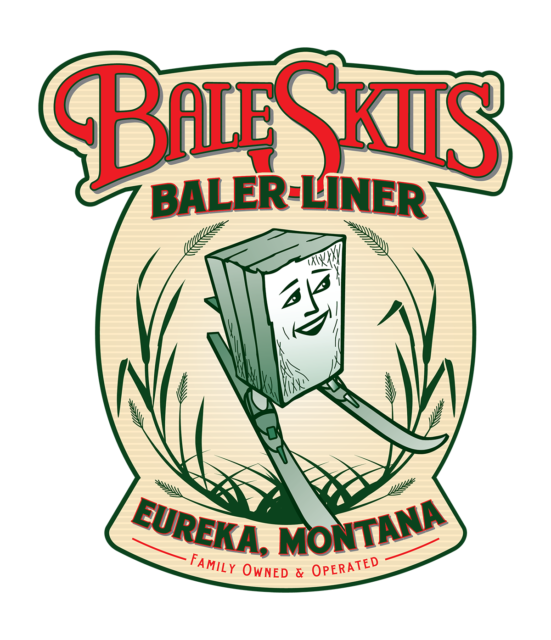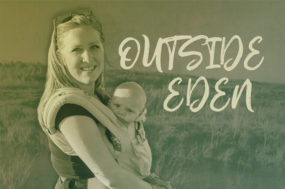Today, with the state of the economy, that decision has proven to be a lifeline for everyone involved. During a recent visit to Hixton, Wisconsin, I met up with Aaron to discuss how going from custom operator to co-owner has played out for him and the newer business as a whole.
Aaron discussed his start in agriculture this way. “I have always had a passion for farming. I didn’t grow up on a farm, but it was around me in the neighborhood I grew up in. When I completed school, I was an assistant fertilizer plant manager and I tried to take advantage of every opportunity I could to stay involved with farming.
“I am now a partner at Trinity Farms. Before coming together with Travis and Lynn, I formally ran a custom harvesting/trucking business where much of the personal land I worked on outside of custom work was rented. It has been in the last two-and-a-half years that we merged our operations together to form a combined harvesting/trucking/dairy heifer/dairy/swine conglomerate.”
Today the operation has a dairy herd with 250 milking cows, a swine operation that finishes between 10,000 to 11,000 head annually, a feedlot with nearly 2,400 dairy heifers and a combined total of over 6,500 acres of a variety of crops.
All this, in addition to custom harvesting, round baling and grain hauling, keeps the business moving every day of the year.
Aaron noted that bringing the three owners and independent businesses together was a good move overall, but it has taken getting used to a new way of management and thinking.
“Lynn purchased an operation up in Canada and rather than try and sell this part of his business, we all came together. Now, Lynn manages the heifer and swine operations, mostly from Canada, I still mostly handle the forage and trucking operations, while Travis manages the dairy and business dealings. We each are able to do what we do best but are able to rely on one another to make the business work.”
“It also has its challenges some days. I was in business for myself for 12 years and was used to making quick decisions. Now, when something needs to be acted on, I need to present it to the other partners and discuss it before anything can be done.
It isn’t necessarily bad, but it does require a different mindset than I am used to working under. Luckily, there haven’t been any problems to speak of between us and I think we are all willing to work together to make things come about.”
Travis’ background in custom harvesting has played a key role in developing the direction forage production has evolved at the new business. While it might not be what most producers find to be typical, it has turned into a promising pattern for Trinity Farms.
“Because we have a unique business setting, we are able to work our forage production in a direction not typical with other operations. Our first-cutting hay is our most critical.
It is directed for high quality for the dairy herd. It is one of the most productive in the county, so having the best hay we can produce is vital to our success.
Because we need quality and the weather doesn’t always cooperate, we produce haylage with this crop. It is the easiest way to ensure we get what we need for the dairy cows.
“Our heifer operation doesn’t need as high of quality, so after we get off the first-cutting hay, we go for a longer cutting time with the other crops, giving us more volume over quality of hay. We will typically take these cuttings to bloom to ensure we have as much hay in the field as possible before we cut. The third cutting is usually chopped and direct-fed at the heifer lot to extend the hay through the fall.”
Although Aaron notes production practices work well for the business as a whole, there are some situations that are not necessarily ideal. These situations require workarounds, but they can be dealt with.
“One problem we face down at the feedlot is not being allowed to have any runoff from the haylage. Because we are trying to avoid this situation, we tend to cut and chop when the hay is a little drier than we would like.
The feed quality remains high, so we have decided the wear on the equipment chopping at this dried stage is justified.
“Corn silage is harvested the same way. It sits a little longer than most producers would typically let it go, but the extra growth means more feed for the heifer operation at the end of the season. Again, it isn’t typical, but it works for us.”
Although the team leading Trinity Farms has a long list of strengths, Aaron notes that there are some roles they still hire out.
“I think too many people take it upon themselves to do their own marketing. We subscribe to a service that helps in that area and we have found it helps keep things evened out for income.
I have yet to see a farmer that is great in this area, so having someone help us in our weaker areas is important. Marketing can quickly become emotional and you have to keep a real perspective when it comes to making real money. Marketers for your crops can help you do that.”
While each member of the Trinity Farms team has a role to play to make the business work, Aaron also noted there is some time for personal interests.
“Right now, I have 50 acres of sunflowers planted. I have a desire to look into the biofuels sector to see if there is a way we can produce part of our own fuels and help keep some of our costs down.
It is something that keeps my interest and it just might turn into a new cash project we develop down the road. When you go through 80,000 to 90,000 gallons of off-road fuel a year, you hope your hobbies can help out at some point. Profitability and sustainability have to be part of what we are.”
Although it has been a change for Aaron, Travis and Lynn, they have come up with a mix that is lending strength to an economy that has many producers struggling right now. While that might not be the best option for everyone, for them, it has become a way to move forward. Aaron summed up the joint adventure.
“I think we are all a lot happier with the joint adventure over running our businesses individually. It is nice to not have to shoulder all the worries and burdens of the business.
“Right now, we are not too worried about getting bigger, but want to become the most efficient and business-worthy we can. If getting bigger is part of the picture, then we will make that decision for the betterment of the entire business. Right now, making money and keeping the business sound is important to everyone and remains the top focus.” FG
Darren Olsen
Progressive Forage Grower editor









